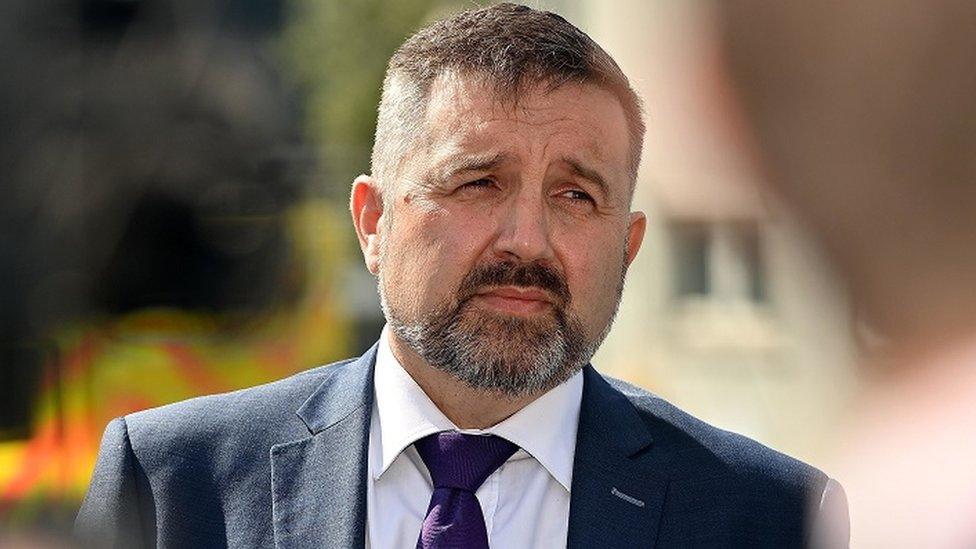Stormont budget passed by MLAs despite opposition
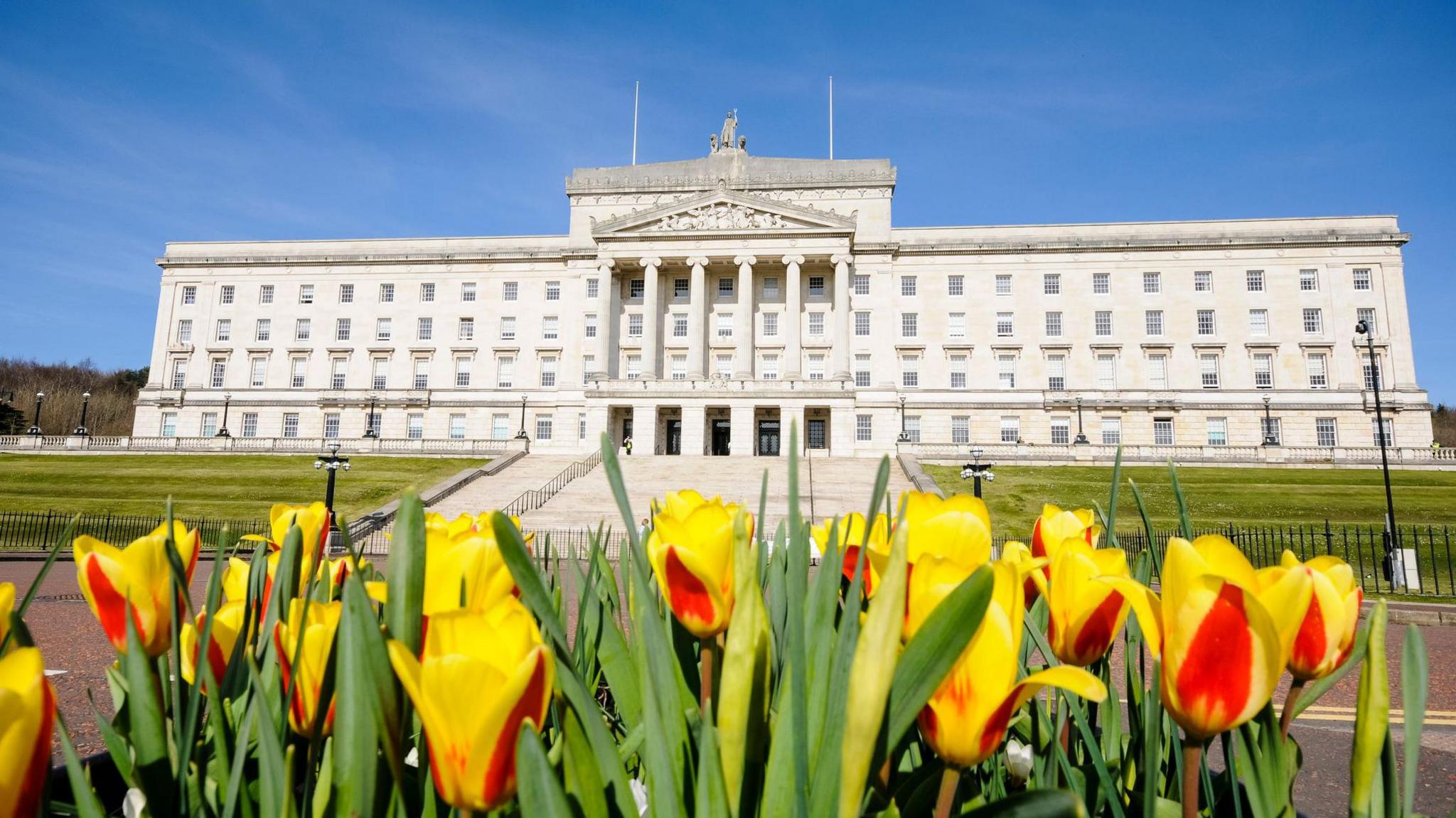
- Published
The Northern Ireland Assembly has passed a first budget in three years, despite several parties voting against the move.
The Ulster Unionist Party (UUP) and the assembly's official opposition, the Social Democratic and Labour Party (SDLP), refused to support it.
Outgoing UUP Health Minister Robin Swann opposed it when it was agreed by other executive ministers in April.
He is due to step down from his ministerial role in order to stand in the UK general election, and said the budget did not prioritise "the health of our people".
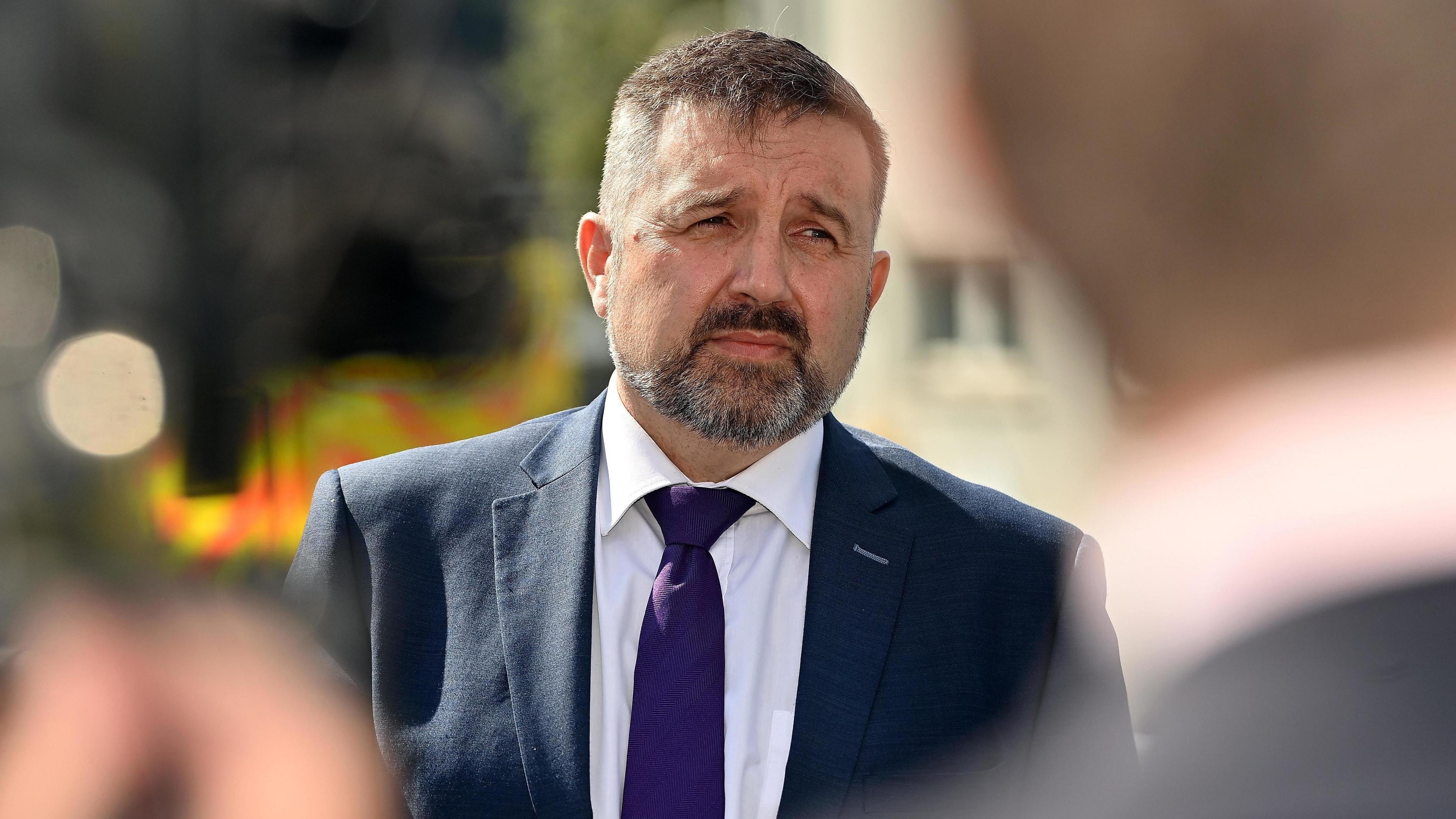
Robin Swann said the budget did not prioritise the "health of our people"
The assembly was unable to pass a budget while power-sharing was suspended between February 2022 and February this year.
The budget passed on Tuesday following a vote which was carried by 61 votes to 21, with cross-community support.
When the finance minister, Sinn Féin's Caoimhe Archibald, announced the budget in April she allocated about £15bn for day-to-day spending and £2bn for infrastructure and investment.
Speaking during Tuesday's debate, she said it was "always going to be an incredibly challenging budget" for the executive.
"For every pound we had to allocate for day-to-day spending for public services, we had three times as many demands," Ms Archibald added.
The Sinn Féin minister criticised the "austerity agenda" of the Conservative government, but said recent negotiations with the UK Treasury meant concerns on future funding levels for Northern Ireland could be "tempered".
Also during the debate, the SDLP's Matthew O'Toole, said the budget was "not a plan" for the future.
The leader of the opposition added "there was no reason why this budget statement couldn't have been a more strategic, forward-looking set of priorities for how the executive was going to go about making decisions".
According to BBC News NI's business and economics editor John Campbell, there is "not much love" for this budget.
Even the finance minister acknowledged it will undoubtedly mean difficult decisions for all Stormont departments, he continued.
Those difficulties will be eased slightly in the next couple of weeks when the minister is able to allocate about £200m of new or unspent funds.
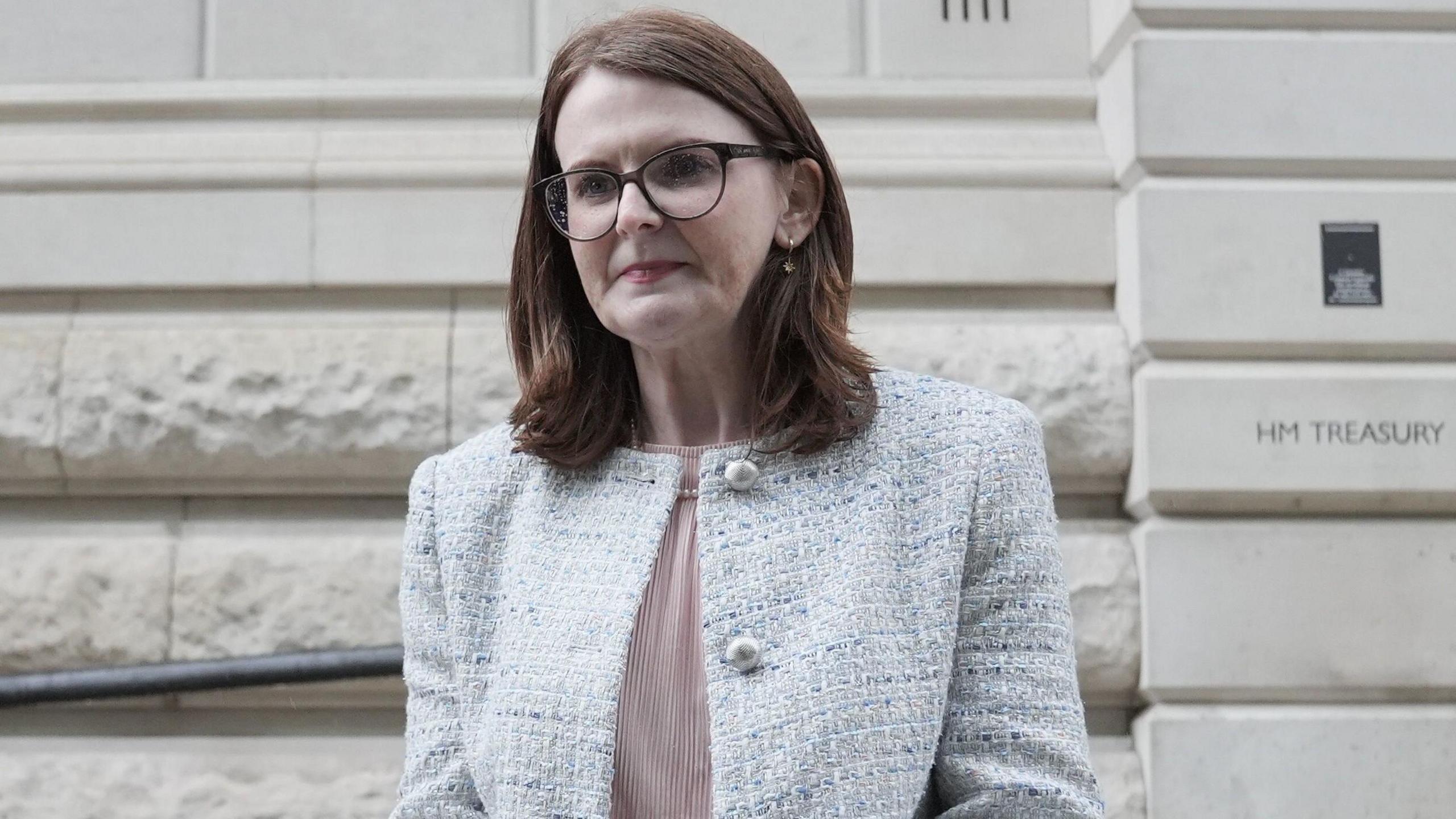
Finance Minister Caoimhe Archibald said it was always going to be a challenging budget
How much money do the departments get?
The Department of Health got the largest share of day-to-day funding (£7.8bn).
The next-largest allocations went to the Department of Education (£2.9bn) and the Department of Justice (£1.3bn).
The health budget was up by 6.3% compared to the opening position last year but was down by 2.3% when compared to what was actually spent by the end of last year.
Mr Swann said Northern Ireland’s devolved institutions must “make the very best use of the resources that we do have and protect the most vulnerable".
"That is why I and so many patients and health service workers took reassurance from the public statements, both before and after the restoration of the executive, that the health of our people was going to be prioritised,” he said.
"I believe this budget does not achieve that."
Mr Swann said that in voting against the budget, he acknowledged he would not be complying with the ministerial code.
"I don't do that easily, but I have a greater responsibility to defend and protect vital services,” he said.
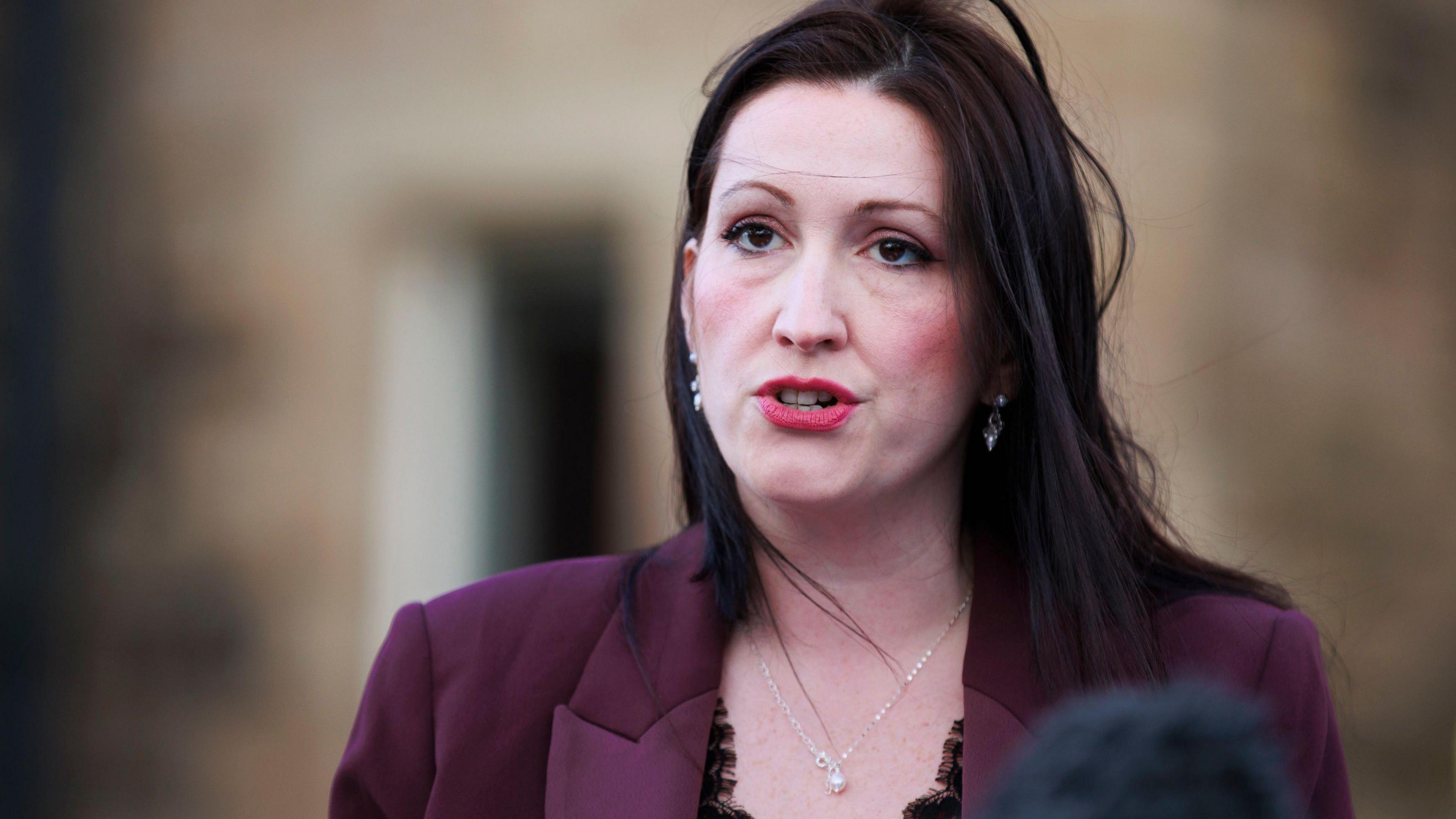
Emma Little-Pengelly said there were other priorities besides health
Is there any extra money?
When the budget was announced, Deputy First Minister Emma Little-Pengelly, of the Democratic Unionist Party (DUP), said she understood Mr Swann's concerns, but there were other important priorities which required funding such as special educational needs.
There will be an additional £200m for the finance minister to distribute in a re-allocation exercise known as the June monitoring round.
That includes some money carried over from last year, additional money from Westminster and the start of a new ‘top-up’ procedure for Stormont’s budget which was agreed with the UK government.
The UUP leader Doug Beattie had wanted the budget debate to be postponed until after the monitoring round.
He said it had "the potential to ease some of the pressures we have highlighted in the existing health allocation", adding that it "makes no sense for the Executive and Assembly to pass a budget that is almost certain to change within weeks".
MLAs from the TUV (Traditional Unionist Voice) and People Before Profit also voted against the budget, along with independent unionist MLAs Alex Easton and Claire Sugden.
Related topics
- Published21 May 2024
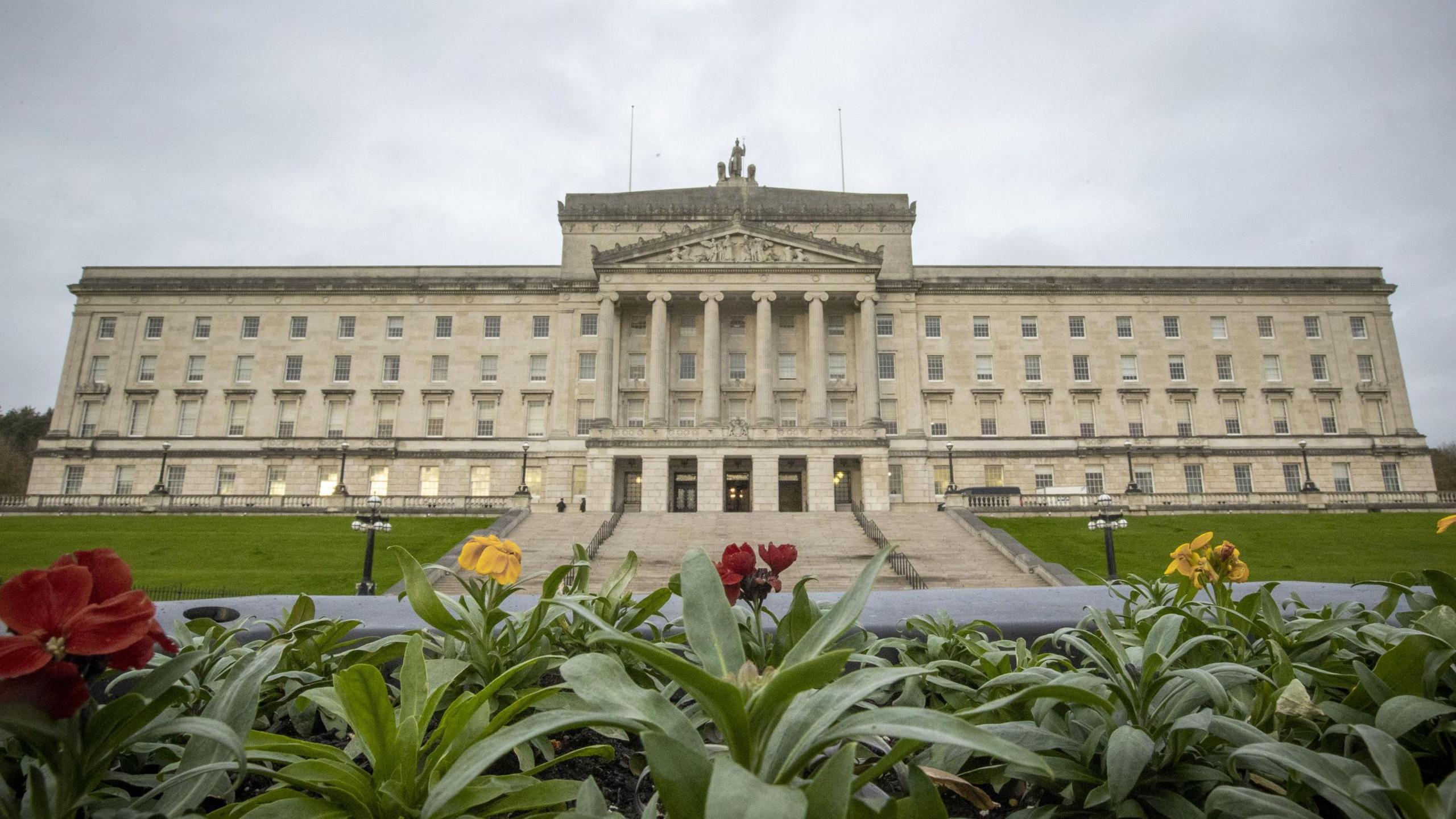
- Published25 April 2024
